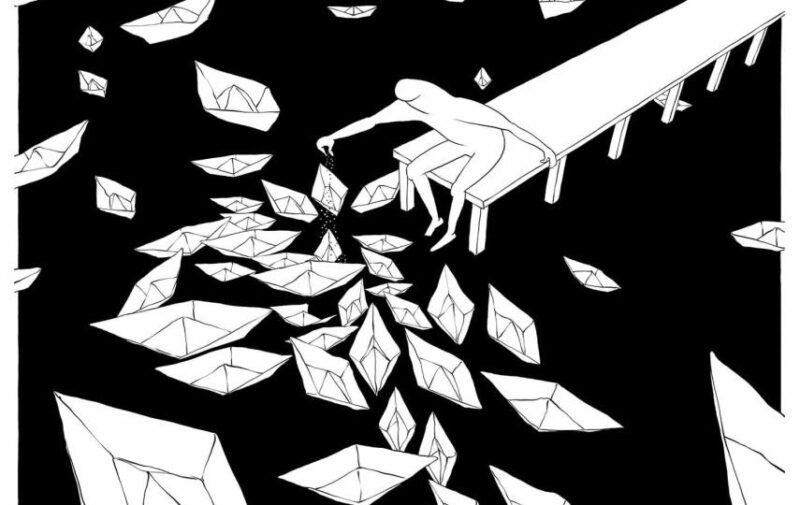

On Tuesday 10 January, the trial of 24 people associated with the NGO Emergency Response Centre International (ERCI) began in Mytilene. Among them are volunteers Sarah Mardini, Seán Binder and Nassos Karakitsos who have been detained by the Greek authorities. The founder of the group, Panos Moraitis, has also been arrested and detained. The organisation and the defendants were involved in both independent search and rescue operations in Greek waters as well as in joint operations with the Greek authorities. According to Human Rights Watch, in 2019 they were charged with facilitating human smuggling, money laundering, the unlicensed use of radios, espionage, and establishing and supporting a criminal organisation.
Amnesty International and the UN Human Rights Office have also called for the charges against Sarah Mardini and Seán Binder to be dropped, with the OHCHR adding that, “Trials like this are deeply concerning because they criminalize life-saving work and set a dangerous precedent. Indeed, there has already been a chilling effect, with human rights defenders and humanitarian organisations forced to halt their human rights work in Greece and other EU countries.”
In a state governed by the rule of law, the authorities must respect and enforce the rights established by the Geneva Convention, the European Convention on Human Rights, and the Greek Constitution.
The refoulement of persons who attempt to enter the country in order to seek asylum, is illegal. Rescue operations at sea seek to protect the right to life of refugees seeking asylum, which is enshrined in the Greek Constitution, Article 2 of the European Convention on Human Rights (ECHR) and the EU Charter of Fundamental Rights.
This case sets a precedent for the prosecution of organisations and individuals seeking to rescue people at sea.The charges levelled and the lengthy judicial process have had the effect of discouraging individuals from participating in humanitarian operations and of criminalising humanitarianism.
Bank Account number: 1100 0232 0016 560
IBAN: GR56 0140 1100 1100 0232 0016 560
BIC: CRBAGRAA
![]()
In a time where the very foundations of democracy are gradually being eroded by the rise of extreme nationalism, alt-right movements, the spread of disinformation and corporate capture, the efforts of organisations such as Vouliwatch are more relevant than ever.
We rely on the generosity of each and every one of you to continue with our efforts for more transparency and accounta
By financially supporting Vouliwatch you support our litigation strategy, our campaigns for transparency and accountability in the political system, the development of new civic tech tools, our research projects and last but not least our impartial and accurate